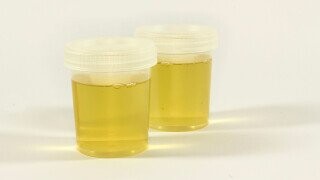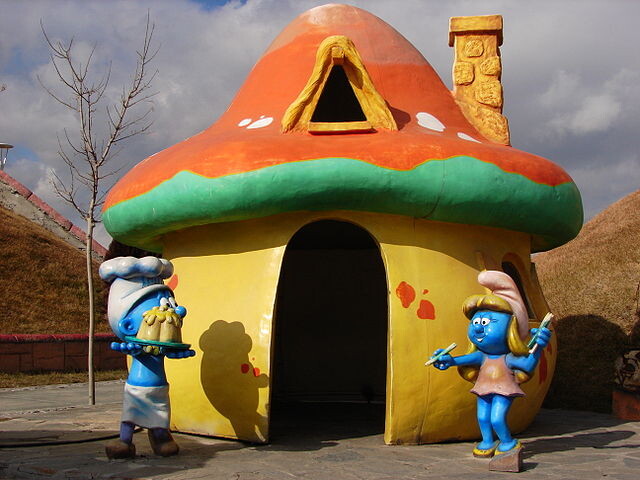Great Moments in Science Brought To Us By Pee

It's not often we have to start off with a medical disclaimer warning you NOT to drink your own urine, but here we are folks.
Some thinkers explore the cosmos for new discoveries, and some search out less awe-inspiring sources to benefit the human race. That means pouring pee in your eyes and in your morning tea. It's not just fetish films on the internet; it's presumably normal people, some of whom are probably sweet, kind people who live next door to you. Yes, this is way more prevalent than you could ever think. And yes, we have evidence, lots of it, a troubling amount of it, too much to include in this article, including testimonials from people who drink it. This is why we lie to our parents about what we write about for a living:
Nobody tell TikTok about this, please.
Don't Miss
Guzzling piss, politely known as "urophagia" in the medical literature, seems to have universal appeal to those in the know. Writers, pop singers, ancient Chinese medical practitioners, MMA brawlers ... the urine therapy rabbit hole goes way deeper than we have time for. If you happen to be one of the millions who indulge in the practice, well, that's cool, just please never, ever tell us about it. We've read way too much about the subject as it is now, and we're starting to have weird dreams.
Why is all this important? Urine, it so happens, has a glorious track record in the annals of science. The analysis of urine, a tradition that goes back as far as written language, has foundations in legit science. Inspecting pee is a huge part of kidney specialists' jobs today. Fortunately for all of us, they don't drink it like their predecessors did. The hard business of researching and uncovering new discoveries is inseparable from the art of quackery. In the Middle Ages, the two were basically the same. And, hot damn, did people really like water sports back then.
It's the deep, dark secret that your chemistry professor politely omits from class. For alchemists and healers in search of the philosopher's stone, there was no more potent or affordable test material than the muck in the chamber pot. People had been trying methods to create gold for centuries before him, but until German alchemist Hennig Brandt started boiling his waste, no one had produced anything to show for it. It still didn't work. Instead, he made a glowing gelatin. His plan to use the glowing green goo as a cheap, renewable light source failed, but not from lack of effort. Mainly, it smelled too damn bad. The first attempt at devising an alternative fuel source was foiled, but from his work, the strike match was created. Don't judge the guy. How many urine-soaked old men do you know with their own portrait in a museum?

When boiled down to base elements, pee yields not gold, but phosphorous, the so-called "devil's element." Bad news for alchemists' bank account, but good news for science. French chemist Nicolas Lemery is the demarcation point between charlatans and real chemists. Before him, playing with pee was merely a get-rich-quick scheme. He made it the pursuit of classy men of learning. Living up to its nickname, the resulting chemical product almost burned down Lemery's house when the condensed piss got misplaced in a guest's bed. From that humble, if traumatizing experiment, we have the life-improving wonders that are white phosphorous and yellow phosphorous. Okay, bad examples, but we're guessing in 360 years something good came out of phosphorous.
The anti-septic viability of urine was never established, though ammonia-based compounds are good disinfectants. So, that's like half credit. Science never gave up its interest in bodily fluids. The bounds of scientific knowledge were greatly expanded by the first synthesis of urea, in layman's terms, fake pee. We told you eggheads were really into urine. The act of creating organic substances from inorganic elements in the 1820s by Friedrich Wohler is a moment we can't take for granted. In one lab test, he destroyed the prevailing scientific idea of his time. It's why today colleges force you to take boring courses in organic chemistry, not boring courses in vitalism.
Pee was always the secret to mankind's development. Saltpeter from churchgoers was used to manufacture gunpowder. Your piss is worth gold even it can't be made into it. Yorkshire, located in the UK, was once so dependent on the substance for the production of fabric that it started to pay for it in bulk. Think of a milkman going door to door with a wagon full of bottles, only in reverse. On second thought, don't think of that. The list of horrible Victorian-era occupations truly never ceases. The Romans did them one better and taxed it, greedily seeking out a source of ammonia, which so happens to be the active ingredient in blue-tinted window cleaners. We're still not sure why it's blue, though.

Science's obsession with urine never pe(e)tered out. In 2017, the US Army announced pee could be used as a source of raw material to harvest energy. Don't look now, but pee batteries might be the new, hot tech fad. We're not saying Elon Musk is going to make a car that runs on pee cells, but it wouldn't be a shock if someone found a novel use for urine and tech gurus began stockpiling it like gold bullion before the government revives the urine tax. Stranger things have happened, and pee is hotter than ever; look no further than the 7,000 #urinetherapy posts.
Top Image: frolicsomepl/Pixabay